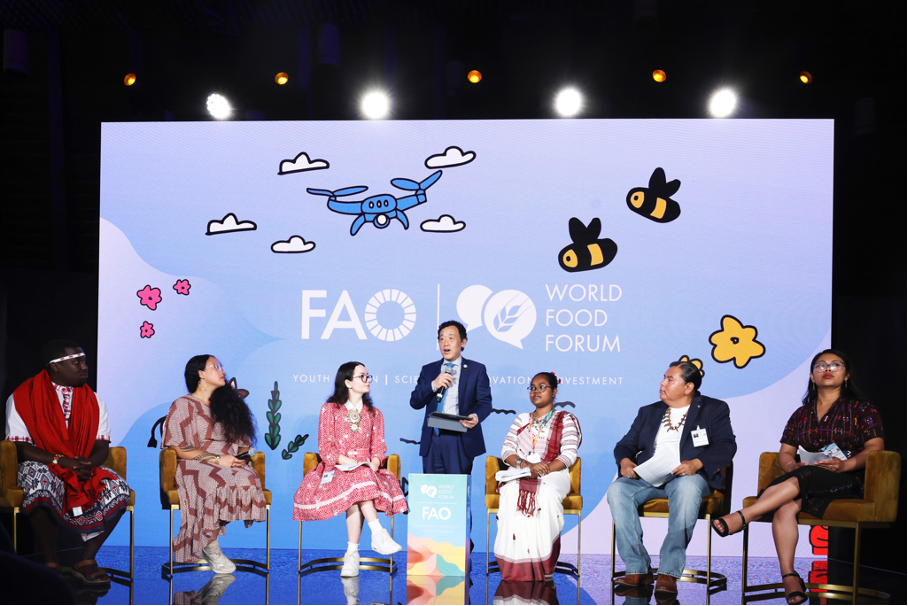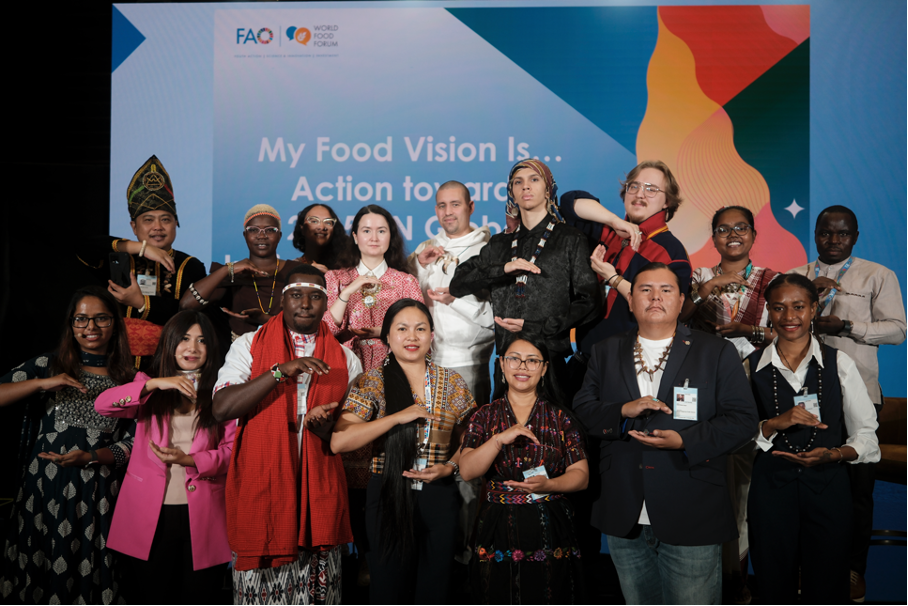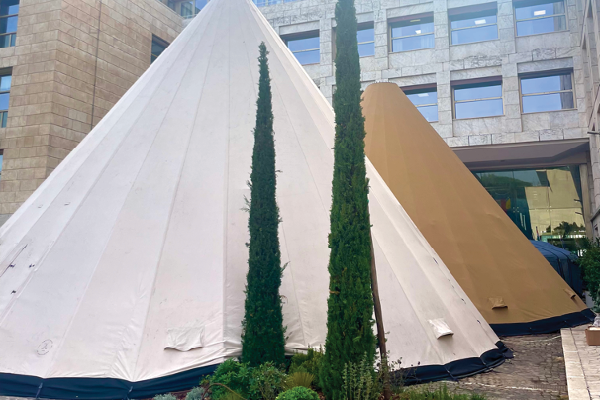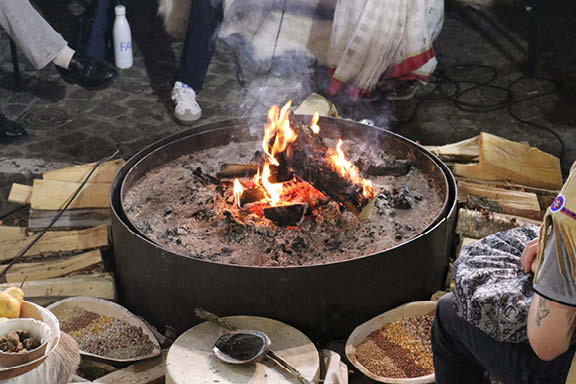Gathered around a fire in two traditional Sámi tents outside FAO headquarters, Indigenous representatives, country delegates, NGOs, academics, and experts—such as those from HLPE, IFAD, and FAO—discussed Indigenous Peoples’ challenges. This setting encouraged an inclusive and open dialogue, accentuating the importance of respect and collaboration in sustaining Indigenous foodways.
Ultra-processed Foods – A Crucial Discussion Point
In light of increasing urbanisation and related dietary shifts, the impact of ultra-processed foods (UPFs) was a crucial discussion topic. Delegates of the Indigenous Youth shared their experience on the effects of UPFs on their communities. All represented regions raised shared concerns about the disruptive influence of UPF consumption, which is connected to struggles regarding land tenure rights, health, and environmental and cultural loss. As Seemran Rashmi Bansingh (Asia Delegate) expressed the issue:
“This is not even food. They are ultra-processed products.”



